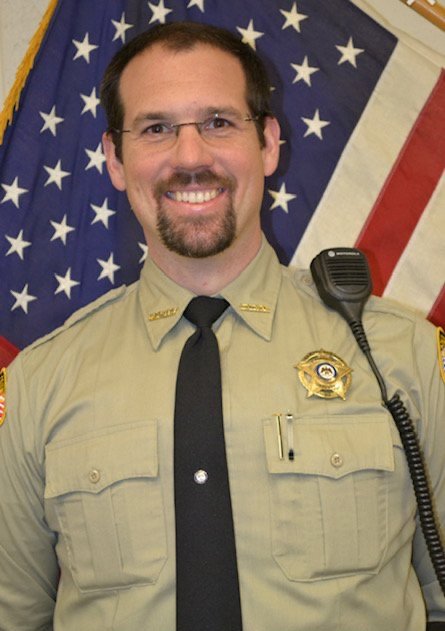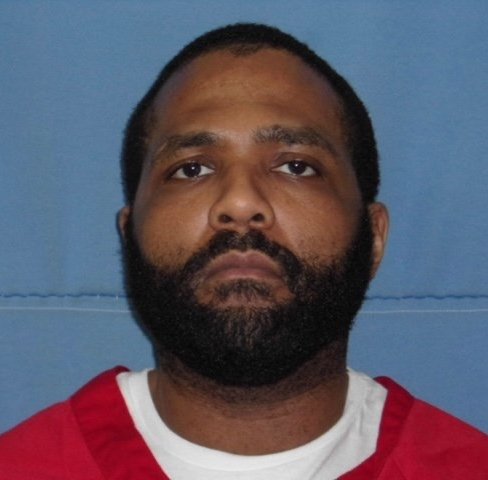‘What About His Trauma?’ Perpetrators of Murder/Suicide May Have Suffered, Too.
In my previous column, I reported on the effects on children who lose their parents when domestic violence ends in murder/suicide. In this column, I look at a notorious Mississippi case of attempted murder/suicide, and how trauma may be behind such cases.
After Domestic Violence Ends in Murder/Suicide: Part II
Over Memorial Day weekend in 2017, Willie Cory Godbolt, then 34, decided to have things out with his estranged wife, Sheena May Godbolt. She had moved out of the family’s mobile home with their young daughter and son because her husband was violent. Sheena and the two children were staying at her mother’s house in Bogue Chitto, a small community near Brookhaven.
During a family holiday party, Godbolt went to see Sheena. But they could not agree on child custody. He took out a pistol and opened fire.
Sheena managed to escape out a window with the two children. But Godbolt killed eight people, including his mother-in-law, sister-in-law, his wife’s aunt and two young boys, 18 and 11 years old, sons of friends of Sheena. He also killed Lincoln County Deputy William Durr, who had responded to reports of a domestic disturbance at Sheena’s mother’s house.
Lincoln County Deputy William Durr was killed in Cory Godbolt's 2017 shooting rampage when he responded to a domestic disturbance call at the home of Godbolt's mother-in-law. Official portrait
Godblot had planned to commit suicide by cop, but was overpowered and arrested instead. As he was taken away, he was asked why he had killed eight people.
He replied, “I love my wife and children.”
How did his childhood experiences factor into his actions?
“What about his trauma?” asks Neil Websdale, Ph.D., sociology professor at Arizona State University and director of its Family Violence Center. At Godbolt’s trial, his defense said that in elementary school, he had witnessed his mother shoot and kill his father, a police officer who was violent towards her.
Because of the violence Godbolt had seen growing up, did he think killing was a loving thing to do? Did he take a page from his mother’s playbook, convinced that shooting a policeman was a solution to his problems?
At ASU, Websdale is director of the National Domestic Violence Fatality Review Initiative, which investigates cases in which domestic violence ends in homicide. He writes prolifically about domestic violence and familicide. In his 2010 book, Familicidal Hearts: The Emotional Styles of 211 Killers, he examines the extreme cases of men like Godbolt. He believes they are responding to some form of trauma.
In The Wisdom of Trauma, a 2021 documentary, Dr. Gabor Mate, a Hungarian-Canadian physician, defines trauma as “an overwhelming threat that you don’t know how to deal with.” Certainly many men confront trauma at some point in life, and don’t know how to deal with it. They can’t just “snap out of it.”
Irish novelist Tara French’s latest book, The Searcher, features a protagonist who is a Chicago cop. He “had seen enough victims to understand that trauma shapes feelings into forms you would never expect.” A Holocaust survivor’s son reports that his father was very quiet and passive, doing little besides reading or watching movies.
On the other hand, response to trauma can mean violence and addiction to drugs or alcohol. Websdale said he believes trauma often has a direct link to family violence.
Many members of the military and veterans, who are exposed to terrible violence, are ambushed by trauma. “Combat is more horrible than anyone can imagine,” says Edward Tick, a psychotherapist who treats soldiers with post traumatic stress syndrome. Every year thousands, tormented by their experiences while serving, strike out violently against their partners and children.
Steven Elliott was one of two American soldiers in Afghanistan whose friendly fire killed Pat Tillman. After 9/11, Tillman gave up an NFL career to join the Army Rangers. The burden of shame, guilt and grief afflicting Elliott, responsible for an accident that killed a public hero, is very difficult to contemplate. In Elliott’s 2019 memoir, War Story, he describes his inability to sleep, his heavy drinking, his distancing himself physically and emotionally from his wife and toddler daughter. His wife recalls how any loud noise would startle him severely and how he would shout at their toddler, often the source of the noise.
Fortunately, Elliott did not inflict any physical violence on his family. Today he speaks out to raise awareness of PTSD and soldiers’ invisible wounds from war.
According to the U.S. Department of Justice, men who kill their intimate partners follow up with suicide about 30 percent of the time – and that statistic may be conservative. In 2003, Johns Hopkins University professor Jacquelyn Campbell found that murder/suicides occur more frequently in the South and West.
Many advocates for battered women believe abusive men coerce, threaten, intimidate and batter their partners and children to exert control over them. But Websdale reports from his interviews with men who have killed their families that these cases can be much more complicated and include other factors besides a desire for control. He contends these men “experience overwhelmingly intense feelings of shame, fear, anxiety and aggression that literally drive their acts of mass killing.”
These murderers may want to control their family members, Websdale says, but they also are in emotional turmoil and acting in response to some form of trauma. Even if they seem well-behaved, they may feel unacknowledged shame and humiliation. They act violently because they themselves feel powerless and out of control at home and in the world beyond their front door. A murder/suicide perpetrator, Websdale says, is trying to regain something he’s lost, which could include “his own pride.”
Websdale’s analysis certainly could apply to a veteran or anyone else with PTSD. Steven Elliott certainly grieved over what he had done, and anger is a necessary part of grief and trauma. Could young Godbolt have suffered from both after seeing his own father gunned down? Long before men behind murder/suicide kill, they feel acutely isolated, even living with family: “Often they appear distant, disengaged, and detached,” Websdale writes.
Willie Cory Godbolt, 38, is on death row after killing eight people during a 2017 shooting rampage. MDOC
Researchers have studied men who were humiliated repeatedly in childhood, and note that their rage made them violent. Was Godbolt in a rage over his father’s treatment of his mother, which he was too young to do anything about, or over his mother’s killing his father?
Because of what had happened at home, was Godbolt mocked at school – “Your dad was a cop, and he couldn’t fight off a woman?” As Godbolt grew into adulthood, did he become driven to strike back at a woman?
MCIR would like to ask Godbolt about these possibilities. We are seeking an interview with him at Mississippi State Penitentiary, where he is on death row. Not a great deal has been written about murder/suicide, and we would like to talk to someone who survived his plan to commit both.
Meanwhile, Sheena May Godbolt, now 37, has changed her and her two children’s names and moved to a community where no one knew them before. Godbolt is on Death Row. Citing his traumatic childhood experience, his lawyers are appealing his case to the Mississippi Supreme Court. His death could be an additional trauma for his daughter and son, who are now in their teens. A major problem for them, and for trauma sufferers nationwide, is there are too few specialists trained to treat trauma, especially for communities of color and non-English speakers. At present, people wait weeks or months for care.
Sen. Dick Durbin, D-Ill., has introduced the RISE From Trauma Act, a bill to fund treatment for children exposed to trauma, as young Godbolt and his children were. But the bill is languishing in the Senate Committee on Health, Education, Labor and Pensions. As chair of the Senate Judiciary Committee, Durbin has had his hands full recently, with the aftermath of the Jan. 6, 2021, assault on the U.S. Capitol, and Judge Ketanji Brown Jackson’s nomination to the Supreme Court.
Ann Marie Cunningham is MCIR’s Reporter in Residence. Ann Marie reported this story while participating in the USC Annenberg Center for Health Journalism’s 2021 Domestic Violence Impact Reporting Fund, which provided training, engagement tools and mentoring, and funding to support this project. Contact her at amc@mississippicir.org.



